Putin’s assembly of forces on the border with Ukraine “suggests that we are about to enter a dangerous new phase of international rivalry,” writes Thomas Wright. Actors around the world, not just within NATO, have an interest in preventing an escalation in military confrontation among the major powers. This piece originally appeared in The Atlantic.
In 2002, at the height of the unipolar moment, as the United States prepared to invade Iraq, some of the country’s most prominent international-relations professors tried to solve a puzzle: Why were other major powers in the world that opposed U.S. foreign policy not doing anything about the invasion? Russia, China, France, and Germany made their views known at the United Nations, but they would not back Saddam Hussein. Nor were they building up their militaries or changing their alliances to oppose the United States.
When states push back against other states that they see as threatening or powerful, political scientists call this behavior “balancing.” In a collection of essays titled “America Unrivaled,” some of these professors suggested that this basic act of geopolitical competition had been missing since the collapse of the Soviet Union because the United States was too far ahead of everyone else. Others argue that the United States was not threatening to other major powers, or that it had constructed a liberal order that was open to all.
Today, however, balancing is most certainly back—and is popularly described with the rather imperfect and amorphous phrase great-power competition. Russia annexed Crimea in 2014, intervened militarily in Syria, and interfered in the U.S.’s 2016 presidential election. Meanwhile, China has built artificial islands in the South China Sea and made rapid advances in military technologies, sometimes surpassing even the United States. Russia and China began to balance as they became stronger but also because Vladimir Putin and Xi Jinping worried that if Western liberalism succeeded globally, it could pose an existential threat to their regimes. Even America’s allies are balancing. Turkey’s Recep Tayyip Erdoğan uses military power and coercive diplomacy freely, cooperating with Russia when it suits. Saudi Arabia and the United Arab Emirates no longer defer automatically to the United States and use military power even when Washington prefers they not do so, as Riyadh has done in Yemen.
The decision by other countries to project military power in ways designed to frustrate U.S. actions is a transformative change in America’s external environment. After the Cold War, the United States could, and sometimes did, treat the geopolitical preferences of rival or even friendly powers as an afterthought. It can do so no longer. In fact, Russia’s assembly of a 175,000-person-strong invasion force along its border with Ukraine suggests that we are about to enter a dangerous new phase of international rivalry.
No one quite knows why Putin appears to be choosing this moment to go after Ukraine. An invasion cannot be credibly attributed to a specific Western action or a precipitating event, such as an intervention in Syria or the European Union offering Ukraine an association agreement in 2013. Some have argued that Putin is frustrated that Ukraine is not abiding by its commitments under the Minsk agreements of 2014 and 2015 to give Russian-dominated regions a veto over Ukraine’s relationship with the West—but this is not a new development.
One interpretation is that Russia is using the threat of an invasion to force a real discussion about the implementation of the Minsk agreements and the future of European security. It will keep the troops in place as a coercive tool, showing that it is willing to use force if the talks stall. This, in some ways, would be an incremental escalation of the type of aggressive balancing behavior that Putin has engaged in since 2014.
The darker scenario is imminent invasion. In a July essay titled “On the Historical Unity of Russians and Ukrainians,” Putin argued that the two countries constituted “one people” and that “the true sovereignty of Ukraine is possible only in partnership with Russia.” Now in his third decade of rule, Putin could well believe that if he does not take decisive action, Ukraine will move further apart from Russia.
An analysis from the Russian International Affairs Council suggested that if Putin decided to invade (which the report advised against), “the apotheosis of the operation should be the encirclement and the subsequent capture of Kiev, and the stabilisation of the front line along the Dnieper. The creation of a new Ukrainian state with the capital in Kiev would be announced and recognised by Russia. It would include the previously-independent DPR and LPR. Russia thereby resolves several historical problems at once. The immediate threat to the southwestern borders is removed. Full control over the Sea of Azov and a land corridor to the Republic of Crimea are ensured. Two Ukrainian states appear on the map, one of which should be ‘friendly and fraternal.’”
Western analysts have long noted that Russian and Chinese assertiveness can be counterproductive. Prior to Russia’s annexation of Crimea, Ukraine felt torn between the West and Russia. Afterward, Ukraine began to move steadily westward geopolitically. Similarly, China’s crackdown on Hong Kong hardened attitudes in Taiwan against peaceful unification along a “one country, two systems” model. An invasion would be Putin’s answer to this critique — if small acts of aggression create anti-Russian sentiment, he will just double down and impose his will.
That’s quite a gamble. If Russia does not rout Ukrainian forces quickly, the conflict could be protracted, with Western military assistance pouring into Ukraine. The inevitable civilian casualties and destruction of property could inflame public opinion in the eastern part of Ukraine, which could lead to an insurgency. Russia could not resort to official deniability, as it did with the annexation of Crimea. And with Kyiv the goal, an uprising could not be dismissed as a far-away conflict over a disputed patch of land.
The prospect of an invasion comes at a time when Putin’s relations with the rest of the world are relatively steady. The Biden administration has made clear that it desires a “stable and predictable” relationship with Russia, by which it means preserving the status quo. French President Emmanuel Macron has long been of the view that Europe should engage with Russia on security matters. Meanwhile, far from being isolated, Putin has actively sought to increase Russia’s ties around the world, most recently concluding a major new arms sale to India.
In the coming weeks, the United States, Germany, France, and the United Kingdom will no doubt seek to strengthen deterrence by raising the cost of an invasion. The Biden administration has also announced that the United States and “at least four NATO allies” will meet with Russia to discuss European security. As it strengthens deterrence and seeks to turn down the geopolitical temperature through diplomacy, NATO leaders should also be sure to remind their counterparts around the world that they have a stake in this crisis too. Indeed, Russia’s ties with the rest of the world mean that other leaders — such as India’s Narendra Modi, Turkey’s Erdoğan, and Israel’s Naftali Bennett — have a significant role to play.
Non-Atlantic leaders are unlikely to take a strong stance in favor of Ukraine and against Russia, but they should know that if Putin takes Ukraine, a Rubicon will have been crossed. The Asian powers (India and Japan) hope over the long run to dilute Russian-Chinese cooperation. An invasion would make Russia ever more dependent on China and possibly politically indebted to it for support during this crisis. India and Japan have a strategic interest in preventing that from happening. More generally, the destruction of the Ukrainian state would turbocharge rivalry between the United States and Russia, especially if Putin retaliated for Western military assistance to Ukraine. This would result in massive pressure on non-NATO U.S. allies to reduce ties with Moscow and isolate it.
This crisis is not just about the Minsk agreements or the dispute between Russia and Ukraine. It is about whether we are poised to see a dramatic escalation in military confrontation among the major powers that will shake the international order to its foundation. The diplomatic effort to prevent this needs to be global.
The Brookings Institution is committed to quality, independence, and impact.
We are supported by a diverse array of funders. In line with our values and policies, each Brookings publication represents the sole views of its author(s).
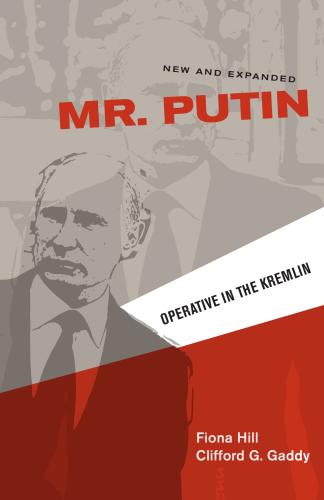
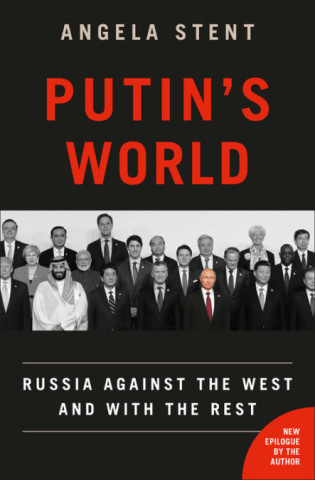
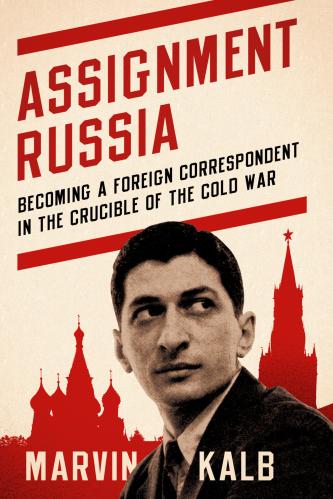
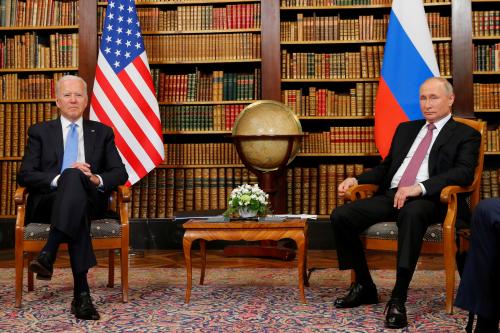
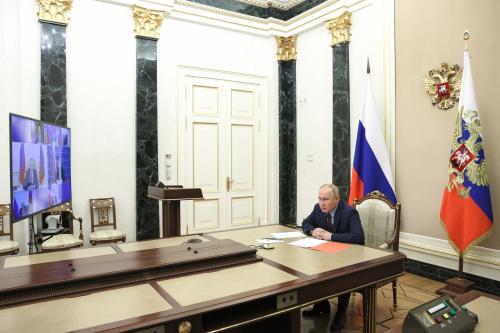
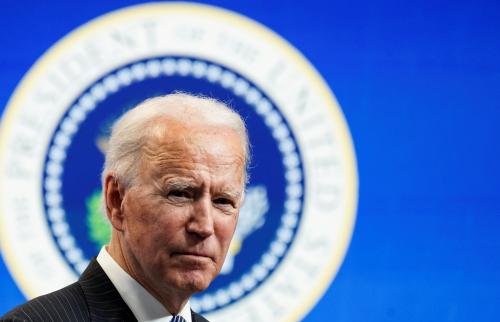


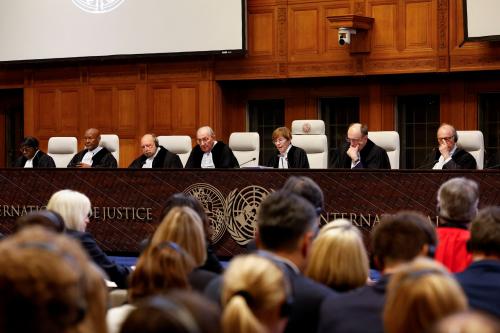
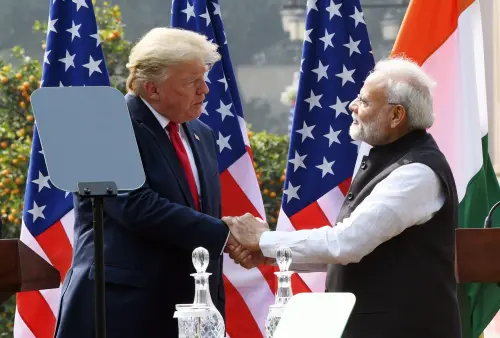
Commentary
Op-edPutin is taking a huge gamble
December 10, 2021